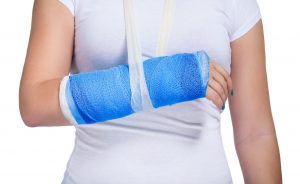
During a median follow-up period of five years, kidney stone patients were found to be at a significantly higher risk of fractures and broken bones.
Males with kidney stones were 10 percent more likely to suffer broken bones, compared to men without kidney stones. The risk was seen highest among teen males – their risk of bone fractures was 55 percent.
Women with kidney stones had a 17 to 52 percent higher risk of bone fractures, with the highest risk among women aged between 30 and 39.
The findings only suggest an association between kidney stones and bone fractures, and not imply cause and effect.
Lead researcher Dr. Michelle Denburg said, “Given that the median time from diagnosis of [kidney stones] to fracture was a decade, we might be able to intervene during this interval to reduce the burden of future fracture.”
How do kidneys keep bones healthy?
You may not think that kidneys and bones are related, but kidneys play a very important role in bone health. Your kidneys are responsible for keeping the right amount of phosphorus and calcium your bones need in the body. When your kidneys are not working properly, phosphorus builds up in the blood, causing calcium to be pulled from the bones.
Your kidneys also help retain vitamin D, so poor kidney function means that vitamin D does not get used up properly in the body, thus contributing to weak bones.
Tips to help prevent bone disease
Regardless of your age, starting to care for your bones is never too late. Here are some tips you can try in order to maintain strong bones.
- Know your risk factors for osteoporosis: age, gender, family history, menstrual history, and personal lifestyle
- Consider your family genes
- Get a bone mineral density test
- Increase your calcium
- Get adequate vitamin D
- Switch to the Mediterranean diet
- Partake in weight-training exercise
- Avoid excess alcohol use
- Don’t smoke
- Minimize caffeine
- Follow your treatment plan set out by your doctor
By following these tips, you can work to improve your bone health.